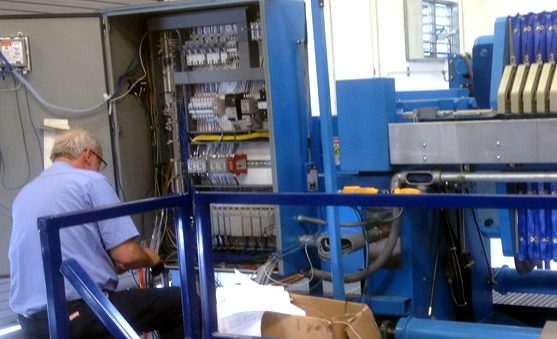Filter presses are an essential tool in various industries, including manufacturing, chemical processing, and wastewater treatment. They are used to separate solids from liquids.
What is a Filter Press?
A filter press is a device that uses a filter medium, such as a cloth or paper, to separate solids from liquids. This product can help apply pressure to the liquid. Forcing it through the filter medium, and leaving the solids behind. The filtered liquid is then collected in a container, while the solids are removed and disposed of.
Components of a Filter Press
A filter press consists of several components, including:
- Filter medium: This is the material that filters the liquid and separates the solids. Common materials used include cloth, paper, and synthetic fibers.
- Filter plate: This is the component that holds the filter medium in place. It is usually made of metal or plastic and has a series of holes or slots to allow the liquid to pass through.
- Filter frame: This is the outer casing of the press, which holds the filter plate and filter medium in place.
- Pressure system: This is the mechanism that applies pressure to the liquid, forcing it through the filter medium. Common pressure systems include hydraulic, pneumatic, and mechanical systems.
- Collection system: This is the system that collects the filtered liquid and removes the solids.

How a Filter Press Works
The process of filtration begins when the liquid into the filter press. The pressure system applies pressure to the liquid, forcing it through the filter medium. The solids are left behind, and the filtered liquid passes through the filter plate and is collected in a container.
The press works by using a combination of gravity and pressure to separate the solids from the liquids. The filter medium acts as a barrier, allowing only the liquid to pass through while retaining the solids. The pressure system ensures that the liquid will through the filter medium, leaving the solids behind.
Benefits of Filter Presses
Filter presses have several benefits, including:
- Efficient separation: Filter presses are highly efficient in separating solids from liquids, making them an essential tool in various industries.
- Cost-effective: Filter presses are a cost-effective way to separate solids from liquids, as they require minimal energy and maintenance.
- Versatile: Filter presses are applicable in a variety of applications, including manufacturing, chemical processing, and wastewater treatment.
Conclusion
In conclusion, filter presses are an essential tool in various industries, providing an efficient and cost-effective way to separate solids from liquids. Additionally, Their versatility and reliability make them a vital component in many production processes.
By understanding the basics of a press and how it works, industries can make informed decisions about their filtration needs and choose the right filter press for their applications.